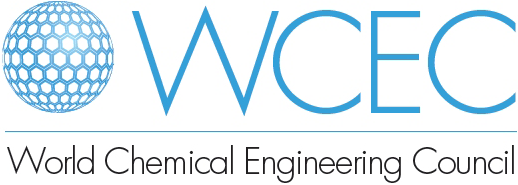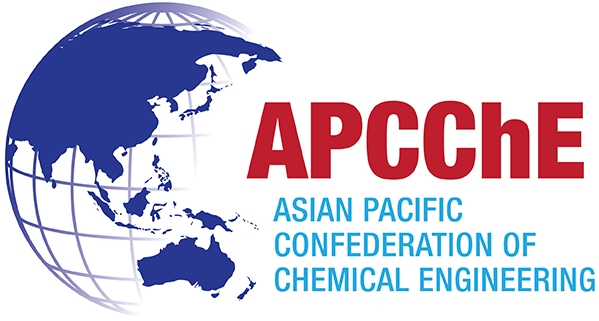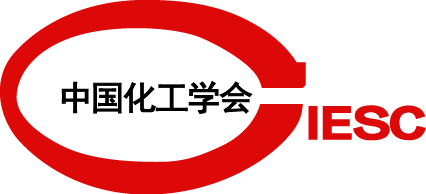PARALLEL SESSIONS
30 Parallel Session Topics - Focusing on Cutting-edge Issues and Inspiring Change
With a focus on such global cutting-edge issues like climate change, energy revolution, poverty alleviation, and quality of life, parallel sessions will feature four major sections: Education and Training, Fundamental Industry Reinfrastruture, Strategic and Emerging Industries, and Future Chemical Engineering and Smart Innovation, exploring the potential opportunities for a new round of “transformation” in the chemical industry, trigger the realization possibilities of new energy, new materials, life sciences, high-end and intelligent technologies that will shape the future, and cultivate a new generation of innovative scientific and technological talents and industrial talents.
Focusing on Four Major Themes, 30 Parallel Session Topics
Education and Training——Future-oriented Chemical Talent
01 Engineering Ethics Education and Sustainable Chemical Industry
02 Chemical Education and the Cultivation of Outstanding Engineers
03 International Symposium of Chemical Engineering Departments/Schools from Global Universities
04 Chemical Engineering Innovation and Entrepreneurship
05 Chemical Engineering Thermodynamics and Big Data
06 Green Catalysis and Chemical Reaction Engineering
07 Flow Chemistry and Microreaction Technology
08 Advanced Separation Technology& Engineering
Fundamental industry Reinfrastruture——Challenges and Opportunities in Transformation
09 Inherent Safety and Process Intensification of Chemical Processes
10 Energy Transition Towards a Net-zero Future
11 Biochemical and Biomanufacturing
12 Process Industry Innovation and Process Systems Engineering Reengineering
13 Intelligent Manufacturing Technology and Equipment for the Chemical Industry
Strategic and Emerging Industries——Exploring New Paradigm Shifts and Industry Applications
14 Advancements in High-Performance and Intelligent Chemical New Materials
15 Green Agriculture: A New Paradigm of Seed, Fertilizer and Pesticide Innovation
16 Biopharmaceutical and Health Engineering
17 Efficient Manufacturing Engineering of Functional Electronic Chemicals
18 Waste Resource Conversion and Circular Economy
19 Biomass Materials & Chemicals
20 Preparation Theory and Application of Carbonaceous New Materials
21 Chemical Engineering Process for Water, Gas Treatment and Environment Protection
Future Chemical Engineering andSmart Innovation——Shaping a New Future for the Chemical industry
22 Carbon Neutrality and Sustainable Development of the Chemical Industry
23 Mesoscience and Artificial Intelligence in Chemical Engineering
24 Single Atom Catalysis and Theoretical Chemistry
25 Hydrogen Energy and Hydrogen Energy Industrial Chain
26 Electrochemical Engineering, EnergyInterconnection and storage
27 Innovation and Practice of Industrial Software in Process Manufacturing
28 Advanced Chemical Materials and Future Chemical Industry
29 Future Energy and Novel Chemical Process
30 Green Energy and Environmental Engineering
Education and Training
1. Engineering Ethics Education and Sustainable Chemical Industry
Chair(s): Tiefeng Wang; Jinsong Zhao
Co-chair(s)(from abroad): David Shallcross
Secretary-general: Diannan Lu
Contact information: Wanying Wang +86 18649020686; wangwanying@tsinghua.edu.cn
As the world's science and technology sectors continue to evolve, the chemical industry remains at the forefront of this transformation, significantly influencing the development of human society. Today, the drive for safer, more sustainable, and lower-carbon solutions is more critical than ever for those of us in chemical sciences and technology.
Enhancing engineering ethics education proves crucial for the high-quality advancement of modern engineering science and technology. It is essential for training skilled professionals and ensuring the long-term sustainable development of our industry.
We are pleased to invite you to an in-depth discussion on "Engineering Ethics Education and the Sustainable Development of the Chemical Industry." Your expertise and insights would be invaluable and we look forward to your active participation.
Thank you, and we hope to see you there.
2. Chemical Education and the Cultivation of Outstanding Engineers
Chair(s): Jinsheng Sun; Xinbin Ma
Co-chair(s)(from abroad): Jarka Glassey
Secretary-general: Hongyan Wang ; Shuqian Xia
Contact information: Zhenli Zhang +86 13693041697; djhdream2015@163.com
Shuqian Xia +86 13752041388; shuqianxia@tju.edu.cn
As an important exchange platform for gathering wisdom from the global chemical education and industry community, this session aims to explore how to reshape the chemical education system in the context of the new science and technology revolution and industrial transformation, strengthen the deep integration between theory and practice, and cultivate outstanding engineers with excellent innovative thinking, profound theoretical foundation, solid professional technology, and broad international vision. The conference will focus on academic exchanges and typical case sharing on institutional innovation, core element construction, and evaluation system establishment for cultivating outstanding engineers, stimulating innovative thinking and further jointly pushing global chemical education to a higher level. All these pieces of wisdom and information are necessary to promote the high-quality development of the chemical industry.
3. International Symposium of Chemical Engineering Departments/Schools from Global Universities
Chair(s): Daojian Cheng
Co-chair(s)(from abroad): Guangzhao Mao
Secretary-general: Chuangang Hu
Contact information: Chuangang Hu +86 13776401360; chuangang.hu@mail.buct.edu.cn
The symposium convenes Deans from chemical engineering schools across the globe, covering cutting-edge dynamics in chemical engineering education and research. Topics include, but are not limited to, the future orientation of chemical engineering programs, curriculum content updates and definition, interdisciplinary or cross-disciplinary research (such as AI applications in chemical engineering), channels for international academic exchange, models for cultivating chemical engineering talent and innovations in teaching methods, ethics and safety education in chemical engineering, strategies for enhancing cooperation with industry, and sharing approaches to commercializing research outcomes. The overarching aim is to promote sustainable development in both education and technology within the chemical engineering domain.
4. Chemical Engineering Innovation and Entrepreneurship
Chair(s): Weihong Zhu
Co-chair(s)(from abroad): De Chen
Secretary-general: Xiang Ma
Contact information: Liangwei Ma +86 18621286641; liangweima@ecust.edu.cn
The "Chemical Engineering Innovation and Entrepreneurship" session, centered on the core philosophy of "Innovation Drives Development, Entrepreneurship Shapes the Future," aims to convene industry experts and academic rising stars to collectively explore the latest research advancements in chemical product engineering. This session aspires to propel chemical engineering technologies from laboratories into the vast market.
Fundamental Industry Reinfrastructure
5. Chemical Engineering Thermodynamics and Big Data
Chair(s): Xiaohua Lu
Co-chair(s)(from abroad): Gabriele Sadowski
Secretary-general: Yuanhui Ji
Contact information: Liwen Mu +86 18502522366; lwmu@njtech.edu.cn
We will delve into cutting-edge topics such as green chemistry, sustainable materials, efficient energy conversion, fine chemical synthesis, and intelligent production systems. These discussions will deeply examine how technological innovations can address industrial upgrading, enhance product performance, and reduce energy consumption and costs. Furthermore, with a keen focus on the heart of chemical product engineering – spanning from molecular design to process optimization, and extending to product lifecycle management – we will showcase the exquisite fusion of scientific principles with engineering technology.
6. Green catalysis and chemical reaction engineering
Chair(s): Zaiku Xie; Weimin Yang
Co-chair(s)(from abroad): S.C. Edman Tsang; Bert M. Weckhuysen
Secretary-general: Yingcheng Li
Contact information: Junjie Su +86 18018562476; sujj.sshy@sinopec.com
Climate change is a global issue. achieving a green and low-carbon transformation in various industries is a common goal of all countries. Efficient utilization of resources, development of green processes, product upgrade are the inevitable trend in the transformation of the global chemical industry. This forum focuses on four directions to explore the future transformation of the basic chemical industry: catalytic conversion of various carbon resources, green and low-carbon chemical technology, high-value chemical manufacturing, and new catalytic materials.
7. Flow Chemistry and Microreaction Technology
Chair(s): Guangsheng Luo; Guangwen Chen
Co-chair(s)(from abroad): Klavs Jensen
Secretary-general: Jianhong Xu
Contact information: Kai Wang +86 13811997208; kaiwang@tsinghua.edu.cn
Flow Chemistry and Microreaction Technology is thought to be one of the key sustainable and cost-efficient solutions for the wellbeing of chemical industry. This session aims to provide a platform to gather researchers and academia around the world for the exchange and dissemination of high-quality research results, latest technical information, and the debate and shaping of future directions of Flow Chemistry and Microreaction Technology.
8. Advanced Separation Technology & Engineering
Chair(s): Qilong Ren
Co-chair(s)(from abroad): Jerry Y.S. Lin
Secretary-general: Qiwei Yang
Contact information: Qiwei Yang +86 13868067514; yangqw@zju.edu.cn
Aiming to address the urgent global need for sustainable development, this session will bring together experts from academia and industry to present and discuss new separation materials, technologies and processes that offer precise molecular recognition and high energy efficiency. The event will showcase the latest developments in membrane separation, adsorption, distillation, crystallization, and other separation methods, and foster collaboration among scientists and between industry and academic institutions. Key topics include challenges and breakthroughs in greenhouse gas capture, water treatment, ultrapure chemicals, clean energy and advanced pharmaceuticals, as well as the application of machine learning and artificial intelligence to separation technology and engineering.
9. Inherent safety and process intensification of chemical processes
Chair(s): Guangwen Chu; Zhe Yang
Co-chair(s)(from abroad): Marc-Olivier Coppens
Secretary-general: Wei Xu
Contact information: Yanbin Li +86 18810869015; liyb@mail.buct.edu.cn
The WCCE 12 & APCChE 2025 conference aims to address global challenges related to climate change, energy revolution, improved quality of life, and poverty reduction. It seeks to transform the paradigm of chemical engineering. Inherent safety in chemical processes is a crucial means to prevent safety accidents in the chemical industry and achieve green, safe, and efficient chemical production. Inherent safety in chemical processes focuses on risk control from the source, requiring a combination of inherently safer technology, risk perception and monitoring, risk management, and emergency response measures. Leveraging process intensification technologies, such as downsizing, cleaning, safety enhancement, and energy efficiency in chemical engineering, is a critical path toward achieving inherent safety, which involves various disciplines, including reaction engineering, mass transfer, and heat transfer, encompassing aspects like forced transfer enhancement, external energy field enhancement, and intensified reaction media. This session aims to convey the concept of inherent safety in chemical engineering to the world. Then the progress and future directions along with the latest process intensification techniques would be discussed.
10. Energy transition towards a net-zero future
Chair(s): Mingfeng Li
Co-chair(s)(from abroad): Martin Muhler
Secretary-general: Le Zhang
Contact information: Lu Han +86 18910492332; hanlu.ripp@sinopec.com
Main topics of this symposium include:decarbonization, catalytic materials and reactions, sustainable aviation fuel and next generation hydrocarbon feedstock.Specifically, this symposium will focus on the opportunity and challenge of energy transition in the sustainable future. The purpose is to promote science, research, technology and further education in its specialized fields, integrating scientific knowledge and technological innovation. A neutral platform will be offered for technological and scientific exchange between industry professionals, university scientists, associations and students. Such information / experience exchange will be organized as keynote lectures, oral presentations, poster symposiums and enterprise expositions.
11. Biochemical and biomanufacturing
Chair(s): Tianwei Tan; Haijia Su
Co-chair(s)(from abroad): Ulrich Schwaneberg; Noriho Kamiya
Secretary-general: Zihe Liu
Contact information: Zihe Liu +86 18301233614; zihe@mail.buct.edu.cn
Biochemical and biomanufacturing is a new industrial model for producing chemicals, fuels, and bio-based materials from renewable biological resources, which can greatly improve the utilization level of renewable biological resources and promote the sustainable development of related industries. In response to the conference theme, "Chemical Engineering Paradigm Change to Meet Global Challenges", this sub-venue aims to provide a communication platform for experts and scholars in global biomanufacturing and related fields to promote the innovation and development of biochemical and biomanufacturing industries.
12. Process Industry Innovation and Process Systems Engineering Reengineering
Chair(s): Lili Sun; Laiyong Zhang
Co-chair(s)(from abroad): Costas Pantelides; Qingfeng Ge
Secretary-general: Mengqi Huang; Sizhao Wei
Contact information: Mengqi Huang +86 18618225056;huangmengqi@sinopec.com
The Process Industry Innovation and Process System Engineering Reengineering sub forum of the Chemical and Basic Industry Reengineering sub forum will focus on process industry innovation and future development, focusing on high-end, intelligent, and green development. Through process system optimization and industrial process reengineering, new development of process industry will be achieved, and new quality productivity will be created. This sub venue will provide a platform for experts and scholars from around the world to exchange and cooperate, jointly explore the recent progress, academic industry frontiers, and future development directions in this field.
13. Intelligent Manufacturing Technology and Equipment for the Chemical Industry
Chair(s): Zizong Wang; Jian Chu
Co-chair(s)(from abroad): Lorenz Biegler
Secretary-general: Xueliang Zhao
Contact information: Xueliang Zhao +86 13810084662; zhaoxl@sinopec.com
The sub-forum will focus on the innovative practice of intelligent manufacturing technology and equipment for the chemical industry, focus on the construction of new quality productive forces in the chemical industry, and invite well-known experts and scholars at home and abroad to carry out exchanges. The main contents include: Petrochemical industry artificial intelligence technology, material research and development technology, resource collaborative optimization technology, process control technique, equipment fault diagnosis technology, safety and environmental protection technology, as well as intelligent sensing equipment, intelligent detection equipment, industrial robots, intelligent logistics and warehousing equipment. The invited speakers include Prof. Alex Mitsos from RWTH Aachen University, Germany; Prof. Venkat Venkatasubramanian from Columbia University, USA; Prof. Victor Zavala from the University of Wisconsin-Madison, USA; and Vice President of BASF Greater China TSS & Digitalization Yehui Yang and related business experts from Huawei, ExxonMobil, SAP, AspenTech, Honeywell, Schneider, Yokogawa, Siemens and other companies.
Strategic and Emerging Industries
14. Advancements in High-Performance and Intelligent Chemical New Materials
Chair(s): Weihong Xing; Changjiang Wu
Co-chair(s)(from abroad): Federico Rosei
Secretary-general: Jianming Pan
Contact information: Jianming Pan +86 15952850631; pjm@ujs.edu.cn
This sub-session aims to establish an international platform for communication, bringing together top scientists, engineers, and industry leaders from around the world to discuss the latest trends, technological bottlenecks, and solutions in the development of new materials. We will discuss in depth how advanced technologies such as artificial intelligence, big data analytics, and machine learning can be utilized to optimize material design processes, enhance material properties, and achieve integration from basic research to industrial applications. Additionally, the sub-session will focus on the integration of intelligent production and sustainable development, promote the concept of green chemistry, and explore the extensive applications of new materials in fields such as energy, environment, and health, contributing to the sustainable development of human society.
15. Green agriculture: A new paradigm of seed, fertilizer and pesticide innovation
Chair(s): Xuhong Qian; Fang Zhang
Co-chair(s)(from abroad): Gusui Wu
Secretary-general: Youjun Yang
Contact information: Youjun Yang +86 13761361907; youjunyang@ecust.edu.cn
Eco-friendly and pollution-free green agrochemicals, including pesticides, fertilizers, and more, are vital to safeguard food security. Seeds, the "chips" of agriculture, govern the yield and quality of crops and are the basis of agricultural modernization.
The dedication to developing green agricultural chemicals and improving seed efficiency and quantity is the key to the green and sustainable development of agriculture, and among the core topics of international communities of chemical industry and agriculture.
In this new era, the industrial landscape is undergoing a paradigm shift. Artificial intelligence, biotechnology, and information technology are becoming an integral driving force for agricultural productivity, promoting the speed, accuracy, and efficiency of research and development on quality green agrochemicals and seeds. Accordingly, this has initiated a new track and a new paradigm of intelligent breeding and green agricultural chemicals, and is expected to transform agricultural science, build a more sustainable, resilient, and productive innovation system for green agrochemicals and seeds, and inject new impetus into the achievement of the Sustainable Development Goals of the United Nations.
16. Biopharmaceutical and Health engineering
Chair(s): Hanjie Ying
Co-chair(s)(from abroad):
Secretary-general: Kequan Chen
Contact information: Kequan Chen +86 13814180652; kqchen@njtech.edu.cn
This session is dedicated to building a platform for the use of biotechnology in the manufacture of drugs and health products. The conference will invite well-known experts and scholars domestic and abroad to discuss the current situation, development trend and future key directions in the field of biopharmaceutical and health engineering, introduce the application of synthetic biology, new materials, artificial intelligence and other technologies in the field of biopharmaceutical and health engineering, provide opportunities for exchanges and cooperation between academia and business, and strive to promote academic exchanges and industrial cooperation in the field of biopharmaceutical and health engineering, and jointly promote the prosperity and development of global health.
17. Efficient Manufacturing Engineering of Functional Electronic Chemicals
Chair(s): Xiaojun Peng; Shigang Sun
Co-chair(s)(from abroad): Wen-Feng Lin
Secretary-general: Mingle Li
Contact information: Mingle Li +86 13252981106; limingle@szu.edu.cn
With the emergence of new display technologies, strategic electronic materials, intelligent sensing materials, and information photonics technologies, functional electronic chemicals have become strategic, fundamental, and pioneering materials for the 21st century. To fully leverage the potential of functional electronic chemicals in modern chemical engineering and strategic emerging industries, close collaboration between academia and industry is essential to explore the smart manufacturing, processing, and application technologies of these materials. Through this academic conference, we aim to bring together experts and scholars from both domestic and international fields to discuss the latest advancements, challenges, and future directions of functional electronic chemicals in various areas such as new energy, semiconductor photolithography, novel lighting and display technologies, flexible wearables, and disease diagnosis and treatment. Our goal is to provide a multi-faceted academic exchange platform for attendees, promoting further development and technological innovation in this field.
18. Waste Resource Conversion and Circular Economy
Chair(s): Yuzhong Wang; Liangyin Chu
Co-chair(s)(from abroad): Jesse Zhu; Troels Skrydstrup
Secretary-general: Xiaodong Guo
Contact information: Defu Li +86 13880727699; lidefu@scu.edu.cn
Materials for sustainable transitions,Recycling and applications of discarded metals, inorganic non-metallic material wastes, polymeric material wastes, etc. Efficient utilization of metallurgical, mineral, renewable, and biomass resources and material preparation.
19. Biomass Materials & Chemicals
Chair(s): Xueqing Qiu
Co-chair(s)(from abroad): Charles Xu
Secretary-general: Xuliang Lin
Contact information: Xuliang Lin +86 18620894227; xllin@gdut.edu.cn
The Biomass Materials & Chemicals sub-conference focuses on the development and application of biomass resources, covering the preparation, performance optimization and functional design of biomass-based materials such as lignin, cellulose and hemicellulose, as well as new technologies and cutting-edge research on the production and processing of biomass into chemicals. Topics include structural properties and functional utilization of biomass, innovation in the application of biomass-based materials in the fields of environment, energy and materials, and new methods and technologies for the conversion of biomass into high value-added chemicals. The conference will discuss the sustainable development and utilization strategies of biomass resources, promote the implementation of biomass-based materials and chemicals in carbon neutrality and resource recycling, and provide scientific and technological support for the construction of a sustainable economic system.
20. Preparation Theory and Application of Carbonaceous New Materials
Chair(s): Shaohui Ge; Luhai Wang; Jieshan Qiu
Co-chair(s)(from abroad): Mauricio Terrones; Rikizo Hatakayama
Secretary-general: Yindong Liu
Contact information: Yindong Liu +86 13701130315; Liuyindong@petrochina.com.cn
The theme of session is “Preparation Theory and Application of Carbonaceous New Materials”. Under the “3060” dual-carbon goal, the conference will focus on key scientific issues in the field of carbonaceous new materials, discuss the latest progress and future development direction of the preparation and application of carbonaceous new materials, and explore the challenges and strategies for the green development of the carbonaceous new materials industry via invitational and oral presentations, so as to broaden the academic horizons, stimulate the inspiration of innovation, and create a platform for interactive cooperation and communication.
21. Chemical engineering process for water, gas treatment and environment protection
Chair(s): Gaohong He; Shuandi Hou
Co-chair(s)(from abroad): Hideto Matsuyama
Secretary-general: Xiaobin Jiang
Contact information: Xiaobin Jiang +86 15904965752; xbjiang@dlut.edu.cn
Chemical industry involves complex processes such as water and gas resource transfer, chemical reaction, phase change and separation. Green, automatic, and intelligent chemical processes are of great significance for ecological water and gas treatment and environmental protection. This session will focus on the novel developments in basic theories and innovative technologies such as new reaction catalysis, efficient separation and purification, and coupled treatment technologies, with a particular emphasis on the interdisciplinary and comprehensive research of the impact, optimization, and regulation in this field on the ecological environment.
Future Chemical Engineering and Smart Innovation
22. Carbon Neutrality and Sustainable Development of the Chemical Industry
Chair(s): Yang Li;Gang Wang
Co-chair(s)(from abroad): Chunshan Song
Secretary-general: Ting Xu
Contact information: Ting Xu +86 13801211396; xuting.syky@sinopec.com
1."Keynote Report on the Development of the Chemical Industry in the Context of Carbon Neutrality";2."Frontier Technology Forum on Sustainable Development of the Chemical Industry in the Context of Carbon Neutrality";3."Green Chemical Technology Forum in the Context of Carbon Neutrality";4."Green Chemistry and CCUS Forum"
23. Mesoscience & Artificial Intelligence in Chemical Engineering
Chair(s): Ning Yang; Zhenghong Luo
Co-chair(s)(from abroad): Raffaella Ocone
Secretary-general: Xiaoping Guan; Xizhong Chen
Contact information: Xiaoping Guan +86 18810865282; xpguan@ipe.ac.cn
Mesoscience studies the evolution rules of mesoscale heterogeneous structures between “microscale” and “macroscale”. The mesoscale in chemical engineering is mainly manifested in the spatio-temporal scale of the material interface from molecules to particles, and the spatio-temporal scale of clusters from particles to the whole reactor. Furthermore, artificial intelligence approaches are playing an increasingly important role in chemical engineering. Data-driven and machine learning methods can be used to infer correlations, develop models, improve processes/systems, and even create intelligent systems that can adaptively learn from the data through data mining and machine learning.
24. Single atom catalysis and theoretical chemistry
Chair(s): Tao Zhang; Jun Li
Co-chair(s)(from abroad): Graham Hutchings;Richard Catlow
Secretary-general: Xuning Li
Contact information: Xuning Li +86 15898162291; lixn@dicp.ac.cn
This session will delve into the significant advancements and latest applications of single-atom catalysis in the contemporary field of chemical engineering. Single-atom catalysis demonstrates exceptional atomic efficiency and unique electronic structures through atomically dispersed catalysts, showcasing distinctive catalytic performances across more than thirty catalytic domains and exerting profound impacts in the field of energy catalysis. Concurrently, computational chemistry serves as a powerful tool for studying and predicting catalytic mechanisms, providing profound theoretical support for understanding the essence of single-atom catalytic reactions. We invite experts and scholars from relevant domestic and international fields to discuss the latest advancements in single-atom catalysis, including strategies for precise atomic-scale synthesis of single-atom catalysts, dynamic mechanisms of single-atom catalysis, novel techniques for characterizing single-atom catalysts, and the cutting-edge applications of computational chemistry and artificial intelligence in elucidating reaction mechanisms and predicting material properties. This session aims to foster academic exchange and collaboration, driving the interdisciplinary application and development of single-atom catalysis in chemical engineering science.
25. hydrogen energy and hydrogen energy industrial chain
Chair(s): Caineng Zou; Lilong Jiang
Co-chair(s)(from abroad): John T.S. Irvine
Secretary-general: Hangzhou Wang
Contact information: Jian Kong +86 13670255767; kj123@petrochina.com.cn
This conference will focus on the key technologies and the latest achievements of hydrogen production, hydrogen storage and transportation, and hydrogen utilization, mainly including renewable energy hydrogen production, diversified hydrogen storage, hydrogen fuel cells, green methanol and green ammonia production, as well as innovative applications of hydrogen energy in oil and gas fields. The conference aims to explore sustainable development routes for the entire hydrogen energy industry chain. Bygathering industry experts, scholars, and corporate leaders, the conference intends to promote knowledge sharing, stimulate innovative thinking, accelerate the commercialization process of hydrogen energy technology, and provide solutions for building a clean and sustainable energy future.
26. Electrochemical engineering, Energy Interconnection and Storage
Chair(s): Zifeng Ma
Co-chair(s)(from abroad): Sanjeev Mukerjee
Secretary-general: Xiaowei Yang
Contact information: Xiaowei Yang +86 13585566895; yangxw@sjtu.edu.cn
The sub-venue theme is "Electrochemical Engineering, Energy Internet, and Energy Storage", serving as the core driving force in the field of new energy storage, with in-depth discussions focusing on three key issues: high safety, low cost, and long life. Topics covered include cutting-edge technologies and application cases of large-scale lithium-ion battery energy storage, the latest developments in research and industrialization of high-safety energy storage batteries, and innovative research on low-cost cathode materials. Additionally, the forum will explore the application of artificial intelligence in the energy internet, the interconnected construction of zero-carbon and low-carbon energy systems, the deep integration of new energy technologies and system integration, as well as efficient processing and optimized control strategies for energy big data, jointly mapping out a sustainable development path for new productive forces in the energy sector.
27. Innovation and Practice of Industrial Software in Process Manufacturing
Chair(s): Feng Qian
Co-chair(s)(from abroad): Meihong Wang
Secretary-general: Wenli Du
Contact information: Jingyi Lu +86 13052509676; jylu_cise@ecust.edu.cn
This session will center around various aspects of process manufacturing industrial software, including research and development design, digital twin technology, planning and scheduling, control optimization, and operational management. It aims to delve into the forefront issues and core methodologies related to the application of new-generation information technologies such as big data and artificial intelligence in empowering process manufacturing. Additionally, the forum will explore the key scientific challenges and breakthrough technologies that drive innovation in process manufacturing industrial software, as well as its role in supporting the transformation of traditional industries towards high-end, intelligent, and eco-friendly practices.
28. Advanced Chemical Materials and Future Chemical Industry
Chair(s): Liping Wu; Huisheng Peng
Co-chair(s)(from abroad): Johaness A. Lercher
Secretary-general: Xudong Huang
Contact information: Lianghao He +86 18801611071; helianghao@petrochina.com.cn
Focus on the innovative achievements in the field of advanced chemical materials and the development trends of the future chemical industry, discussing green intelligent manufacturing of advanced chemical materials and sustainable development of the future chemical industry.
Conference Content:
1.Global development trends, challenges, and future opportunities in the chemical new materials and chemical industry.
2.The Latest Innovative Achievements in Advanced Chemical Materials:
Focusing on the latest progress in the design, synthesis, characterization, and function of new materials, and how these innovations drive the development of the chemical industry.
3.Applications of Advanced Chemical Materials:
Focusing on the application prospects of new materials in fields such as electronic information, new energy, biodegradable materials, and aerospace, and how to enhance the performance of new materials to meet high-end manufacturing.
4.Deep Integration of Artificial Intelligence with new material R&D and Manufacturing:
Focusing on the application of digital technology in advanced chemical materials and the future chemical industry, discussing the significant role of artificial intelligence in the R&D, manufacturing, and operation of new materials, and accelerating the development of the smart chemical industry.
5.Sustainable Development of the Future Chemical Industry:
Focusing on how the chemical industry can achieve green intelligent manufacturing of high-performance materials while ensuring economic benefits, achieving green economy and sustainable development (energy conservation and emission reduction, circular economy, green chemistry, etc.).
29. Future Energy and Novel Chemical Process
Chair(s): Chunming Xu
Co-chair(s)(from abroad): Ying Zheng;Shouliang Yi
Secretary-general: Xingying Lan
Contact information: Xingying Lan +86 18610962527; lanxy@cup.edu.cn
(1) Keynote reports on future energy, novel energy storage, process innovation and intelligent processes. (2) Frontier research and industrial practice of novel chemical process for future energy. (3) Scientific and technological applications of artificial intelligence for the chemical industry.
30. Green Energy and Environment Engineering
Chair(s): Suojiang Zhang; Tongwen Xu; Minhua Shao
Co-chair(s)(from abroad): Yulong Ding; Guo-Hua Hu
Secretary-general: Hongyan He
Contact information: Hongyan He +86 18601334250; lahyhe@ipe.ac.cn
The "Green Energy and Environmental Engineering" forum will bring together global experts to explore the latest breakthroughs in renewable energy technologies. Topics will include the efficient conversion and storage of solar, wind, and biomass energy, as well as groundbreaking innovations in clean energy production, such as hydrogen and fuel cell technologies. The forum will also address critical challenges in environmental restoration, including carbon capture, utilization, and storage (CCUS), pollution control, and advanced water treatment. Additionally, we will promote green chemical processes aimed at reducing harmful substances in the chemical industry, improving energy and resource efficiency, and collectively working towards a cleaner, more sustainable future.





